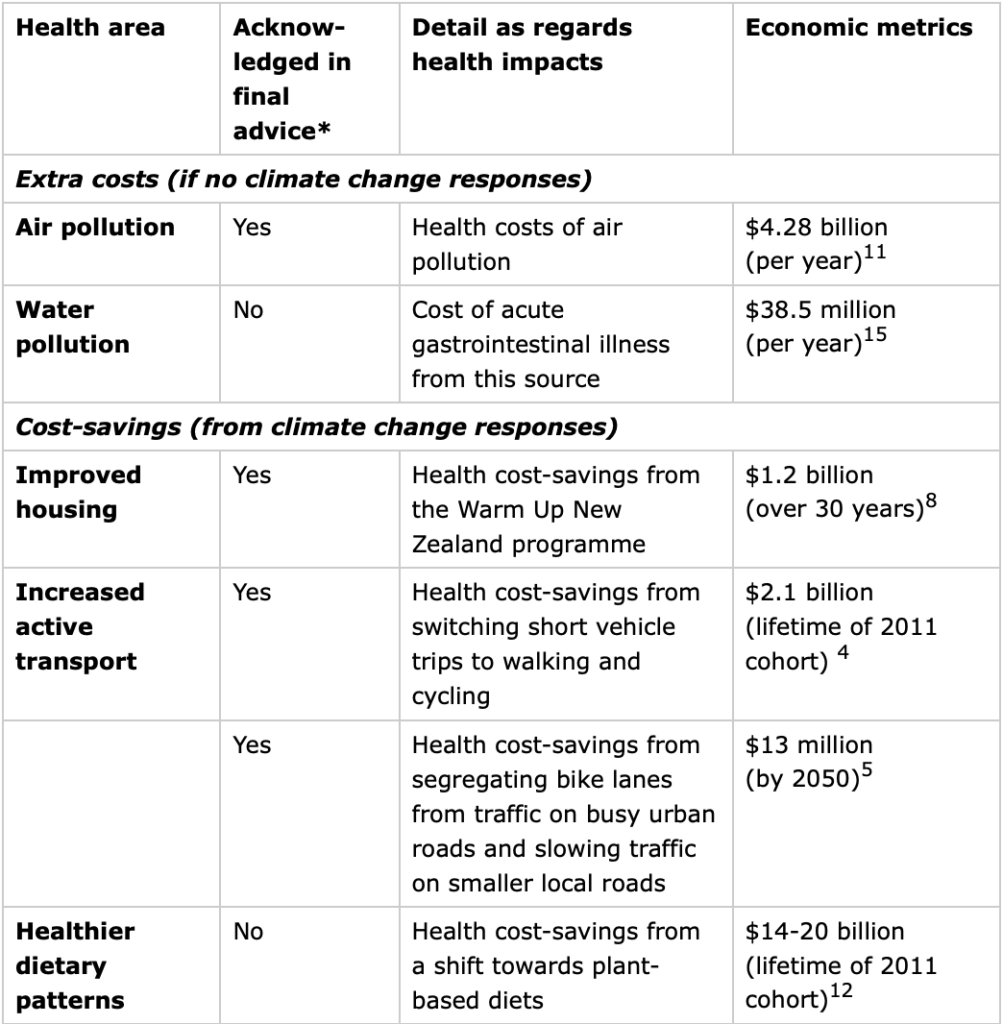The analyses supporting the NZ Climate Change Commission recommended pathways for mitigating climate change impacts project a negative impact on the economy.
The Commission’s modeling estimates that their recommended ‘transition pathways’ would reduce national GDP by a maximum of $45 billion over the next 30 years, or an average of $1.5 billion per year (obviously the actual distribution of ‘losses’ would vary).
However, a team of public health experts from the University of Otago argue (as presented in this Public Health Expert article) that by omitting more comprehensive quantification of health co-benefits from its recommended strategies, the Commission has painted the wrong economic picture.
They contend: “…the Commission’s final advice inadequately accounts for the financial benefits of reduced air and water pollution, increased active transport, improved housing and improved diets that could potentially result in net long-term savings to society from responding to climate change.”
While the Commission accepted much of the evidence presented regarding health benefits in its final advice, it did not include these financial savings in its economic projections.
The health experts argue that the health costs associated with air pollution alone (which would be sharply reduced via a transition from carbon-fueled transportation) would amount to roughly $4.28 billion a year … a financial (plus quality of life) benefit offsetting the average ‘cost’ of transition by nearly three times.
They conclude: “Crucially, the Commission’s advice has failed to adequately incorporate the substantial financial benefits arising from health co-benefits in its final modelling or discussion around the model’s final GDP predictions. Consequently, there is a major missed opportunity to demonstrate the potential net financial benefit climate action could have for society.”
This table indicates the types of health co-benefits that would arise from a climate change transition strategy for New Zealand. As you will see below, the biggest benefit would come from shifting to more plant-based diets … not an appealing prospect to Hawke’s Bay’s sheep and beef farmers.



Biggest load of anticipatory bull shit l’ve seen or read ! God help us all.